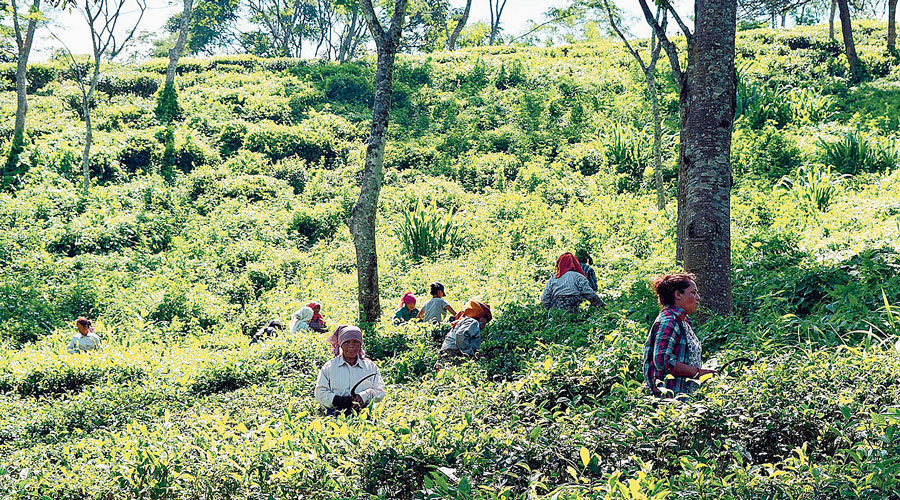The proscribed Ulfa (Independent) asking Amalgamated Plantations Private Limited (APPL), the country’s second largest tea producer, to immediately relocate all its administrative offices to Assam and also recruit indigenous people could be linked to reports about the company’s plans to “downsize” its Guwahati office.
The outfit in a notice to the APPL on Thursday also warned that officials of the company will not be allowed to travel in Assam “for business” and that it may also force closure of their tea gardens if the twin demands were not met.
APPL chief executive officer V.S. Gulia told The Telegraph on Thursday night that he had also heard about the out-of-the-blue notice and was looking into the development.
The APPL on Saturday evening said it will seek the “intervention” of appropriate authorities to “protect the interests of our employees and facilities in Assam” while reiterating that it remains firmly committed to Assam.
However, industry sources said the Ulfa (I) notice could have been prompted by the APPL’s decision to “transfer” some Guwahati corporate office staffers to its Calcutta headquarters.
Another source said the “restructuring” has also impacted its garden managers in Assam — issues mostly connected with their retirement and replacement.
The company, which was carved out of the erstwhile Tata Tea Ltd in 2007, has 21 gardens in Assam and four in Bengal.
Former Tata Tea general manager Bolin Bordoloi, who was instrumental in setting up the Tata Tea office here in the nineties, told this newspaper that there is a move to downsize the APPL Guwahati office and a few senior staffers have been transferred to Calcutta.
“This is upsetting. Whatever they do (APPL), they should not shift the whole office out of Assam because it will hurt local sentiments,” Bordoloi said.
Tea Board chairman Prabhat Kamal Bezbaruah told this newspaper that he was “against any kind of coercion but would like the tea companies/gardens to employ as many local people as possible”.
The notice was a topic of discussion in industry and government circles because the tea sector forms the backbone of the state’s economy along with oil.
Any disturbance/unrest hurts the economy of Assam which contributes over 50 per cent of the country’s total tea output.
The state government too is looking into the matter. Chief secretary Jishnu Baruah said: “We are looking into it (the Ulfa threat letter) and will provide necessary help wherever required.”
Government and industry sources, however, said it is not yet clear whether Ulfa (I) delivered the notice to the APPL management/gardens, or only mailed it to media houses on Thursday.
While downsizing has emerged as a possible reason for the Ulfa (I) notice, a section also feels the outfit was trying to “whip up local sentiments” by espousing the jobs for locals cause.
They pointed out that it was the second instance since March that the outfit has raised this pitch. It had set a rider to release two abducted employees of the private oil company Quippo — create employment for 5,000 youths of Assam.
“Then too, they had put jobs for locals as one of their key demands. This time too they are harping on employing local people. There is no other demand in the Ulfa (I) notice. This could be an attempt to whip up local sentiments. The timing of the notice too has to be taken into account given the post-poll fluid political situation,” one of the sources said.
Responding to various media enquiries and reports, the APPL reiterated that it remains firmly committed to Assam.
“The majority of our employees, 12,000 of whom are shareholders of our company, are from Assam. We continue to maintain our main operating office in Guwahati and have 21 tea estates/operating units across Assam, employing almost 50,000 people (including seasonal workers). We have invested substantially in two tea processing units at Hattigor and Lattakoojan tea estates and in a spice processing centre near Misa,” it said.
The APPL also added: “In addition to business investments and employment opportunities, we run various community welfare initiatives for livelihood, education, skill development and healthcare, that have positively impacted the lives of about 2.5 lakh people in the state over the last 5 years.”











